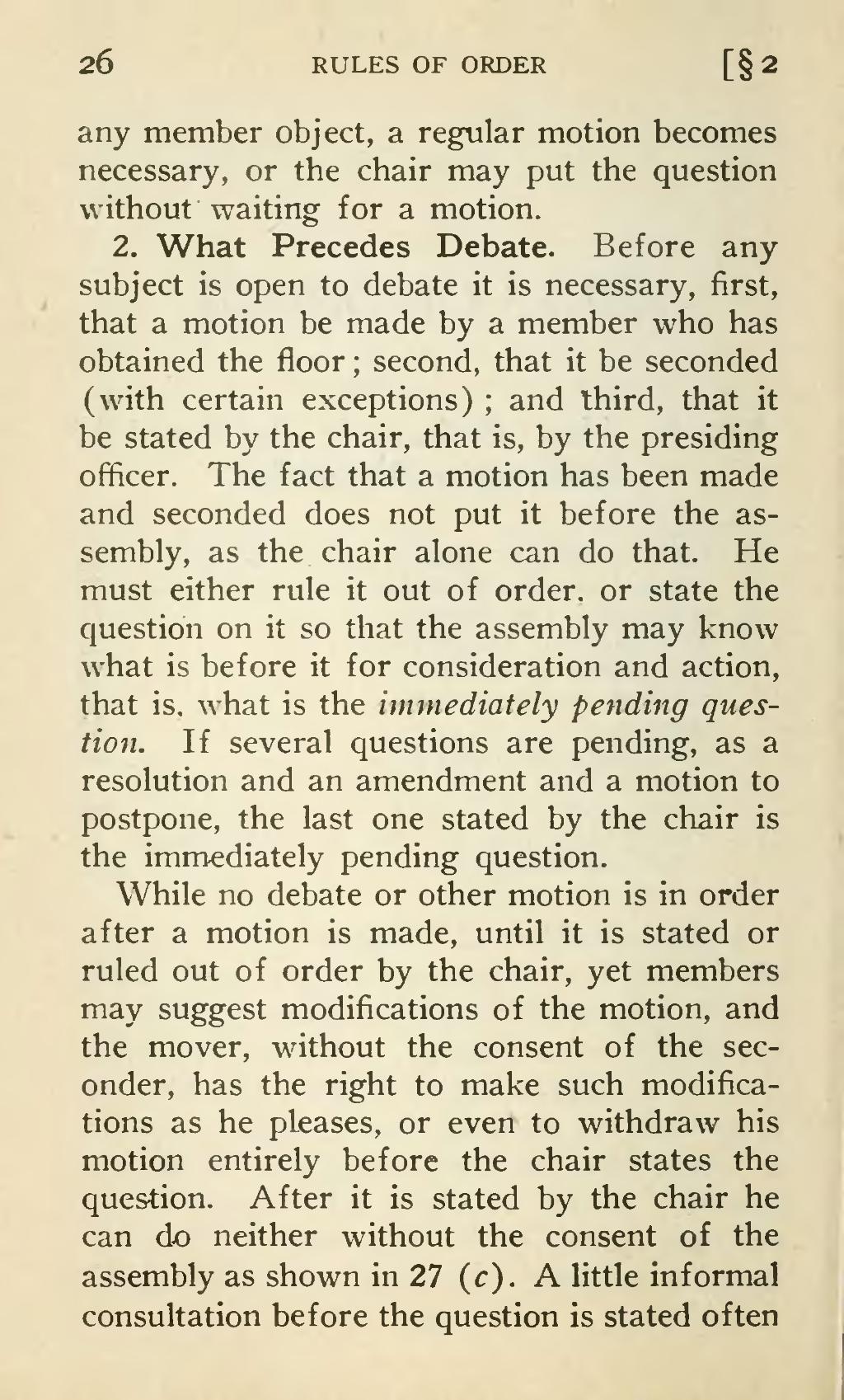any member object, a regular motion becomes necessary, or the chair may put the question without waiting for a motion.
2. What Precedes Debate. Before any subject is open to debate it is necessary, first, that a motion be made by a member who has obtained the floor; second, that it be seconded (with certain exceptions); and third, that it be stated by the chair, that is, by the presiding officer. The fact that a motion has been made and seconded does not put it before the assembly, as the chair alone can do that. He must either rule it out of order, or state the question on it so that the assembly may know what is before it for consideration and action, that is, what is the immediately pending question. If several questions are pending, as a resolution and an amendment and a motion to postpone, the last one stated by the chair is the immediately pending question.
While no debate or other motion is in order after a motion is made, until it is stated or ruled out of order by the chair, yet members may suggest modifications of the motion, and the mover, without the consent of the seconder, has the right to make such modifications as he pleases, or even to withdraw his motion entirely before the chair states the question. After it is stated by the chair he can d-o neither without the consent of the assembly as shown in 27 (c). A little informal consultation before the question is stated often
